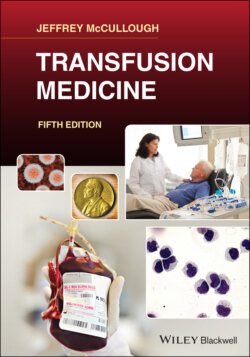Читать книгу Transfusion Medicine - Jeffrey McCullough - Страница 179
Donor–recipient matching for granulocyte transfusion
ОглавлениеABO antigens are probably not present on granulocytes (see Chapter 8), but granulocyte concentrates must be ABO‐compatible with the recipient because of the substantial volume of red cells in the concentrates. The clinical impact of ABO incompatibility on granulocyte transfusion was evaluated in one study [92]. A small number of 111In‐labeled granulocytes free of RBCs were injected into ABO‐incompatible recipients. The intravascular recovery, survival, and tissue localization of the cells were not different from those seen when similar injections were given to ABO‐compatible subjects [92]. This study was not intended to encourage the use of ABO‐incompatible granulocyte transfusions, but this could be considered if granulocyte concentrates that are depleted of RBCs could be prepared.
Incompatibility by leukoagglutination or lymphocytotoxicity is associated with the failure of transfused CML cells to circulate or localize at sites of inflammation [93, 94]. Studies using 111In‐labeled granulocytes in humans established that granulocyte‐agglutinating antibodies were associated with decreased intravascular recovery and survival, failure of the cells to localize at known sites of inflammation [95], and excess sequestration of transfused granulocytes in the pulmonary vasculature [95, 96]. However, applying these research data to the practical operation of a blood bank and granulocyte transfusion service is difficult because granulocytes can be stored for only a few hours, and cells are not usually available for crossmatching to allow advance selection of compatible donors. The only practical approach has been to monitor the recipient plasma for the presence of granulocyte‐agglutinating antibodies, traditionally done by screening the patients’ serum against a panel of cells periodically. More recently, in vitro techniques such as flow cytometry have been developed for detecting anti–human leukocyte antigen antibodies.
If a patient becomes alloimmunized, trials of human leukocyte antigen–matched unrelated donors or family members can be selected for leukapheresis, if available. However, the problem of donor–recipient matching and compatibility testing for granulocyte transfusion has not been solved.
